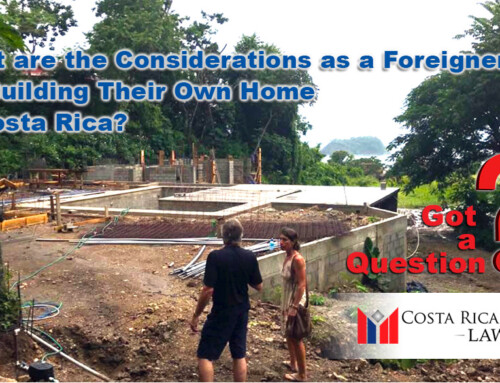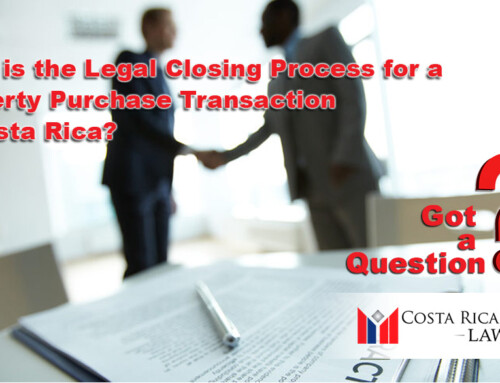What Are the Considerations for Purchasing Pre-Construction (Pre-Sales) Properties in Costa Rica?
In Costa Rica, there is currently a residential construction “boom” and the offerings for Pre-Sales property purchases by Developers is abundant, particularly in the beach tourist-oriented areas and in the Central Valley, in or close to the San Jose Metropolitan area. Developers are eager to use a purchaser’s money to help build their real estate development and routinely offer sizeable price discounts to those purchaser’s who purchase in pre-construction projects. However, a purchaser does have to consider the additional risks to be incurred when proceeding with a Pre-Sales real estate purchase.
Risks for Pre-Sales Property Purchases
A would-be purchaser is usually first introduced to a Pre-Sales purchase opportunity by way of an artist’s depiction advertised on the Developer’s web site or on other social media of what the development will supposedly look like when completed. However, it is wise to ask the Developers for client references and a list of other projects which the Developer has built, in order to view the quality of construction. It is very important to know that the Developer as the Seller, owns, or has irrevocable control, over the land where the project is being built and that all Government licenses and approvals have been obtained to build the proposed project. Additional oversight by the Costa Rica Ministry of Economy, Industry, and Commerce, in the form of pre-approval for sales of multi-unit developments is also required. The Pre-Sales Purchase Agreement entered into between the purchaser and the Developer, should be very specific as to what the final product will look like and make declarations by the Developer of the quality of the materials to be used, with Building Plans and inventories of fixtures and furnishing to be provided by the Developer, attached as Addendums to the Purchase Agreement. If you are purchasing a residential home or condominium unit from a Builder/Developer or having a home custom built, the Costa Rica Civil Code in Article 1185, provides you with a Statutory Guaranty of five years from the date of delivery, for defects in materials and workmanship, attributable to the Architect or the Builder. This Guaranty cannot be legally waived by a Purchaser.
Paying the Purchase Price to the Developer
This, of course, is the single most important factor in such a Pre-Sales real estate purchase. The question that must be answered is, how can the purchaser’s monies be protected in the payment to the Developer for a constructed entity yet to be built? The answer is, all purchase monies, including any deposit amount agreed to be paid by the purchaser to the Developer under the Purchase Agreement, must first be placed in an escrow account of a Government registered Escrow Company, pursuant to the provisions of an Escrow Agreement entered into by the purchaser, the Developer, and the Escrow Company. This Escrow Agreement will govern the dispersal of purchase monies to the Developer as various construction milestones in the project are met by the Developer. Before any good faith deposit amount is released from escrow in favour of the Developer, the purchaser must have conducted and be satisfied with the legal due diligence for the project. Subsequent purchase monies dispersed from escrow in favour of the Developer, will only be made when a specific construction milestone, such as laying the foundation or erecting the walls, have been certified by an independent Engineer or Architect as having been met in both compliance with the Building Plans and the quality of the materials used. In that manner, the purchaser will be protected for the property value and the construction value completed, in relation to the amount of the funds advanced to the Developer. The usual hold-back for the final payment of the purchase monies to the Developer is 10% of the purchase price until any irregularities found by the purchaser on what is commonly referred to as a “punch-list”, are corrected within a specified time by the Developer.
My Opinion
Although it is clear that the risks to a purchaser involved in purchasing a property from a Developer, through a Pre-Sales Purchase Agreement, are significantly greater than purchasing a property in a completed project, if a purchaser carefully follows the due diligence steps that I am recommending in this article, there can be significant financial benefits realized by a purchaser. For a purchaser to enter into a successful Pre-construction Purchase Agreement with a Developer/Seller, it is essential that the purchaser seek independent legal advice and not merely enter into an Adhesion Purchase Agreement offered by the Developer/Seller for the pre-construction property purchase.






